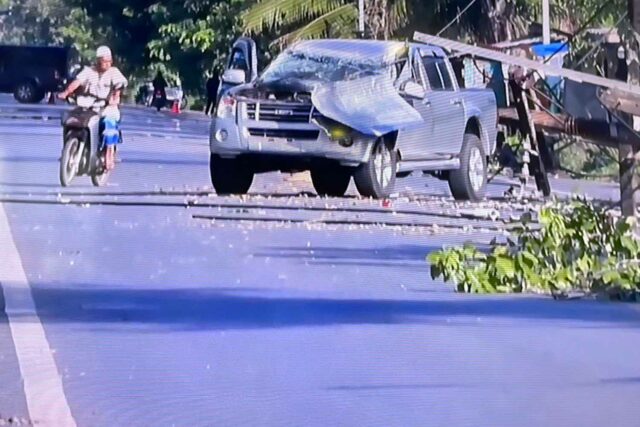
Brief: Drug-Trafficking and Jihadist Nexus Possibly Behind Terror Attack in Southern Thailand
Publication: Terrorism Monitor Volume: 21 Issue: 19
By:

On August 29, a Thai police officer and two local defense volunteers were killed in an ambush in Yarang district in Pattani province, southern Thailand, where ethnic Malay Muslim militants have been waging an insurgency for decades. While the attack has not been claimed by any group so far, this may be explained by the secretive nature of the militant factions and their lack of formal media units. The tactics used and choice of target resemble what has been seen by the same militant groups in the past. To the extent that the ambush differed from those previous, it appeared to show growing sophistication: the militants ambushed the patrol near a relatively hard target—Yarang’s municipal office—and were able to flee the scene without being captured. The attackers’ escape was partially facilitated by the bombing of five utility poles in the area, which caused minor local blackouts and hampered attempts at pursuing the militants (bangkokpost.com, August 29).
One possible theory is that the ambush was linked to drug trafficking in Pattani province. Three weeks before the ambush, on August 3, a police motorcyclist was assassinated in the area on his way back from meeting with informants and collecting evidence related to a major drug trafficking case (thaiexaminer.com, August 3). Subsequent police investigation suggested that the militants and drug traffickers involved in the ambush were linked together.
Given the nexus between drug trafficking and militancy that has been seen elsewhere in the world—for example, the Taliban’s participation in the opium trade in Afghanistan, or FARC’s participation in the cocaine trade in Columbia—there are growing concerns that the same problem might be on the rise in southern Thailand, specifically, and Southeast Asia, more broadly. As early as 2018, Thai authorities announced that drug traffickers who had been arrested for smuggling crystal meth and heroin from Thailand to Malaysia had been linked to southern Thai militants and smugglers in Malaysia (benarnews.org, July 24, 2018).
To that point, the Thai state has demonstrated that it considers the securing of its border with Malaysia to be a high priority. Three months before the most recent ambush in Yarang, Thailand erected multiple new checkpoints and official border posts to deter traffickers from crossing the 595 kilometer-long border with Malaysia (scmp.com, May 14). The border itself has also been known for its porousness, with hundreds of Uighurs fleeing China attempting to enter Thailand in 2017; most of these individuals were subsequently arrested by Thai authorities (aljazeera.net, October 12, 2018).
Since a tenuous Ramadan truce took place in the spring, the Barisan Revolusi Nasional (BRN) rebels have indicated that they would be open to making peace with the Thai government, should a certain level of autonomy be granted to the ethnic Muslim Malays of southern Thailand (benarnews.org, April 10). Several factors have complicated this process; while the BRN is the largest of the region’s anti-Thai militant groups, it does not have a monopoly on anti-state violence—the Patani United Liberation Organization (PULO), for example, has not been included in the peace talks so far. Other factions of the BRN itself and groups more closely aligned with drug traffickers will not necessarily accept proposed resolutions, be it for financial or ideological reasons. On top of this, the BRN refused to negotiate with the Thai state until after a new government had been formed following their elections in May. This was resolved only recently, with Prime Minister Srettha Thavisin formally inaugurated on September 5 (nhk.jp, September 5). The recent ambush in Yarang demonstrates the complexity of an insurgency in which much of the violence against the Thai authorities is carried out by highly unidentifiable factions or traffickers with whom any negotiations have so far proven unworkable.



